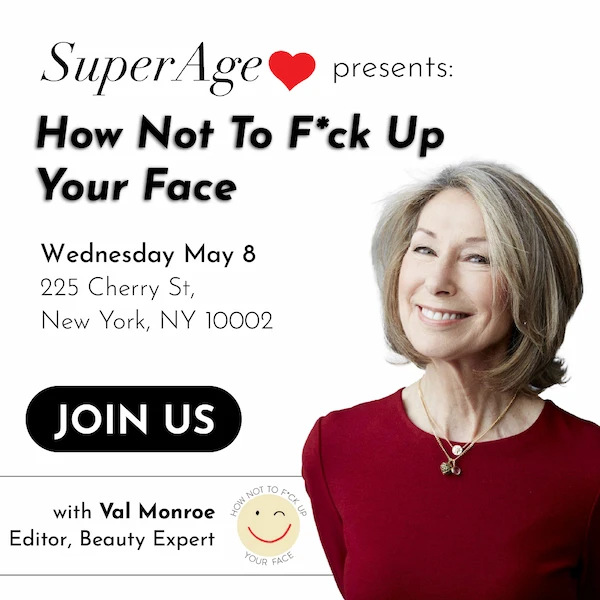There are numerous self-help books, articles and, of course, highly valuable career coaches that we can and should avail ourselves to. But we felt there was a gap in our knowledge about what was going on with the other side of the table: the HR teams that were actually tasked with hiring. Was ageism being practiced? Why would a highly-skilled worker our age not be hired? We needed to know.
Successful businesses are run by optimizing their work force and getting the greatest economic value out of it. What are the reasons candidates are not being hired, or even considered, for the jobs if they have the skills? Is it as simple as discrimination based on age? What we discovered was much more nuanced than that.
We chose to speak with a range of HR people, all senior with 10-25 years of experience in leading hiring teams. The companies chosen included those from technology, creative industries and manufacturing, and were large, well-known corporations.
Culture vs Age Issue
At no time did we get the feeling that they were justifying a culture of discrimination. They acknowledge that it does happen, but that it is not so much an age issue for the most part, but a culture issue. There will be circumstances where there is nothing the candidate can do about the bias, but in many cases, there is a solution.
The job of a hiring team is similar to that of a dating service: they are looking to make the best match to an existing group of people. Skills are, of course, massively important and it goes without saying that in a competitive market the candidate’s skills not only need to be on point, but as in dating, it is the human connection that counts most in the end.
Some of the bias-related issues have to do with incorrect beliefs on the part of the candidate’s potential supervisor, and these may not be able to be overcome. Surprisingly, we heard the candidate can actually have a big impact on the process. The responsibility for the problem is on both sides of the hiring equation; there is a great deal that the applicant has control over, and for the most part it has nothing to do with the applicant’s main skill set. Our experts said the issues are almost always relational:
- Is the candidate someone people want to be around, especially younger people?
- Is the candidate intimidating in their use of experience and knowledge?
- Is the candidate making a meaningful connection with the interviewer?
Problem: The candidate seems skilled, but culturally out of touch
Our HR person who focused on creatives told us that first of all the work has to be awesome, better than a younger person’s, because there is some bias to overcome. But just as important: Is the candidate up to date? Are they cool? Are they energizing? Do they have a feel for what is happening in a fast-paced world?
Problem: Younger manager does not want an older hire, fearing a competitor
This we heard from all of our HR experts: the manager may feel that the candidate will want to ultimately take their job. Remember that the younger manager is probably focused on climbing a ladder and advancing their career. Be clear that you are there to make that happen faster for them, not to take over. Be aware of seeming like you are smarter than the manager. Be humble.
Problem: The hiring team sees the candidate as over qualified
If so, why does the candidate want this job? Will they be challenged? Are they looking to jump ship as soon as something better comes along, meaning the hiring team will have to go through this all over again? The candidate needs to explain why this opportunity fits into their lives today and that they will be there for the long haul.
Problem: Hiring team pre-supposes the more experienced candidate will want more salary, and not wanting to waste their time, they pass the candidate over for a younger one
Indicate that you are flexible. Don’t over share on your experience in your resume; keep it to one page. If someone has been at a job for a number of years, with corresponding salary increases, the new position may not have the budget to accommodate it. In the first interview, make it clear that you can adapt to what they need and that you understand you may be on the high end but you are flexible and want to continue the conversation to see where it goes. Otherwise, the hiring team will not want to continue the process if they feel at the end of it your salary ask will be too high.
Problem: Your resume and cover letter subtly indicate you are not current
Don’t use a standard resume format; the HR people see the same basic template over and over. Hire a good graphic designer to do it for you. It will indicate that you pay attention to details and that you are not just phoning it in. Then pay attention to little things like the language. Written language has evolved in the last 30 years. A simple example is: use a single space after a period rather than a double space.
The hiring team will search all your social media. Develop a cohesive, robust presence on LinkedIn, Twitter and if you can, a blog. Get a good, professional portrait of yourself. Be part of the conversation in your industry. If this is awkward, and it can be for a lot of senior-level people, hire a social media coach. There is tremendous value in sharing, and you may even get your next job out of it.
Problem: Unconscious bias, on both sides
Suppose the candidate is older than the interviewer, maybe significantly so. Demonstrate agility, flexibility, and that you are current, while empathizing with the younger person’s bias. This is the classic fear of the other. It is neutralized by internally identifying with them rather than looking to spot differences. They may be identifying the candidate with their parents, while the candidate is identifying the hiring manager with their kids: “You could be my daughter.” The applicant needs to be clear that the interviewer may be younger, but that has no bearing on the situation any more than the applicant being older. Ageism can go both ways, and it is almost always triggered by fear.
All of our sources told us the same story of a seasoned person who sailed through the opening interviews, but in the final one got scared, and unconsciously indicated some bias towards the younger person. This can be especially tricky if the interviewer is of another gender.
It may be that the candidate is uncomfortable with dealing with younger people. Try to have a mock interview with a few people half your age. Seek out a reverse mentor. Learn from them how younger people communicate, what is acceptable and how they see you. The candidate in many circumstances will be applying to work with younger people, and it is the candidate’s responsibility to adapt, not the other way.
Ageist filters in the process
Everyone we spoke to said that they are hyper aware of the legal implications of discrimination based on age, and although they know that it is practiced in smaller companies, they go to great lengths to ensure it is not practiced where they work. The legal and career risks are just too high. Many companies are eliminating the education lines from the online applications for exactly this reason. Not all companies, but many.
Your positioned has been Riffed (Reduction in force)
We heard that for the critical-thinking C-Suite person, their re-hiring options will be different from the long-time middle-management person. The problem for the long-time middle-management is that they may have been digging deep in their current role the last few years, not really challenging themselves in the bigger picture. They have been comfortable and gotten complacent. The non-current person is going to have a lot of difficulty getting current. The solution is to think like a C-Suite person: read and learn constantly, stay up on what is current in the culture in addition to your field. Understand and embrace that learning is now a lifetime endeavor. One suggestion was to read the Sunday New York Times cover to cover. When you are in the interview process you will be able to pull out bits that indicate that you are current. Remember the bias will be that you are dated, so you need to go the extra mile.
Problem: It is not your skills, it is your self-awareness
This is the #1 thing all of our experts told us. The candidate needs to read the room and remember it is a two-way conversation. Yes, the candidate may have mad skills, but they need to rein it in and make a connection. Connection, not domination, wins the days.
Understand the company culture well beforehand. Maybe a suit is appropriate, probably it’s not and will only work against you. When in doubt, just hang out in the parking lot a week before the meeting and check out what people are wearing. Get your outfit dialed in way before you are face-to-face. Do your homework and know who you are speaking with, what their background is, what they have written, what their social media is. If you are prepared in this way you will be less anxious in the meeting, more relaxed, and better able to connect with others. Because that is what they are looking for: someone they have a connection with.
Over and over, what we heard was that the ageism that candidates feel is often just cultural dissonance. This can be overcome. It may be hard, and seem insurmountable, but it can be done.




[…] The Truth About HR Hiring Practices […]
All of this SOUNDS great! However, this information is applicable ONLY if the hiring entity invites the job candidate to interview for the position. Hiring entities select candidates for interviews based upon their completed online applications.
[…] The Truth About HR Hiring Practices […]
[…] Magazine founder David Stewart has done a terrific job of researching and writing a story called “The Truth About HR Hiring Practices.” I encourage everyone over 45 to read it and learn more about culture vs. age […]
[…] Ageist founder David Stewart published a look inside the hiring practices of HR departments, interviewing leaders having 10-25 years of experience. While those interviewed admitted there was some age discrimination in hiring, often the issues have more to do with relational qualities than skill set or outright ageism. […]
Very intersting and informative article. Thank you for sharing as I am working on tackling these issues as well.
Being self-aware and reading the room and making a connection with the interviewer–such great advice. All of these things makes the other person feel like ‘you get it.’ Love the writing on this site.